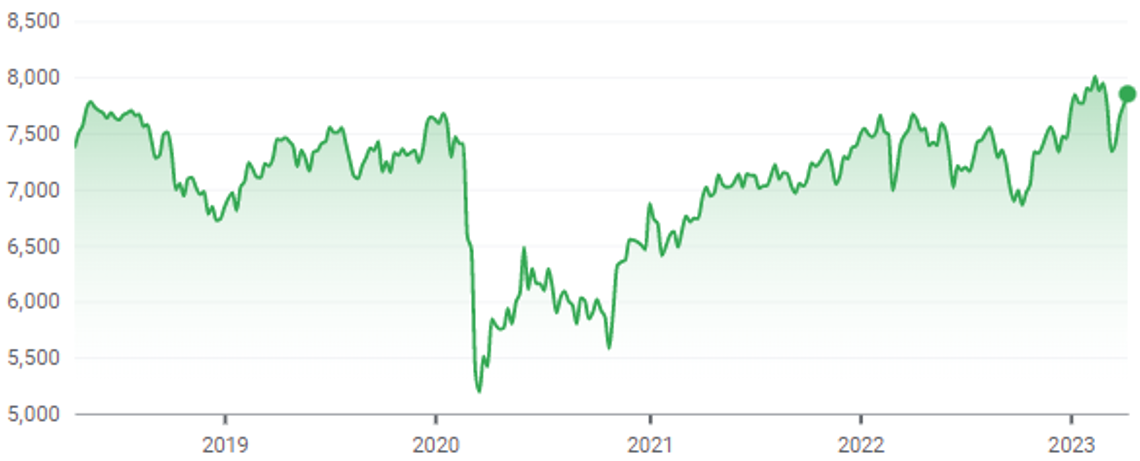On 23 April, more than 40,000 runners took on the world-famous London Marathon. As you can imagine, athletes must be in prime shape, with much training required to conquer the epic 26.2-mile run.
Much like the effort needed to train for the London Marathon, you could benefit from putting the same level of preparation into your long-term financial plan. Life is much like a long-distance run, and without enough planning for the lengthy journey ahead, you could find it hard to go the distance.
So, continue reading to discover some of the surprising similarities between the London Marathon and your own long-term plan, and how a financial planner could be the “trainer” you need to help you every step of the way.
1. The earlier you start training, the better
Before attempting to run a marathon, you typically need to train in the gym for months and practise running for many hours. No one is ready for a marathon overnight.
Similarly, it is essential to prepare your financial plan long before making any important decisions. This helps ensure that you make informed choices regarding your wealth, rather than going through life without the required groundwork to support you.
This is especially true with your pension. Just like training for a marathon, if you seek pension advice early in your career instead of waiting until you retire, this could keep you on track to meet your saving targets within your desired time frame.
Your pension is a long-term investment, so a financial planner can help you manage your retirement savings flexibly over an extended period of time, and even run regular reviews of your investments and suggest any refinements.
Above all, just as marathon training should begin months before you run the race, seeking help from an expert years before you retire can give you the peace of mind that your pension may support your lifestyle throughout the next chapter of your life.
2. No matter how hard you train, conditions can affect your performance on the day
No matter how hard you train, there’s always a chance that conditions on the day could affect your performance. For instance, if it rains, or if the weather is warmer than expected, will you still be able to complete the race in the time you expect?
When it comes to your wealth, even after you’ve built a thorough financial plan, you shouldn’t be complacent – it’s sensible to be prepared for any financial shock that may come your way.
Take the Covid-19 pandemic, for example. This unexpected event resulted in market downturn that affected investment portfolios around the world.

The above chart, published by Google Finance, shows the performance of the FTSE 100 stock market index over the past four years. As you can see, the index fell significantly from 7,466 on 7 February 2020 to 5,190 by 20 March of the same year.
On 12 March, the FTSE 100 fell 10.9%, the worst one-day fall since 1987 – coinciding with government-mandated lockdowns imposed to halt the spread of Covid-19.
While it’s near impossible to predict such events, you could prepare for potential financial shocks by working with a financial planner.
We can provide informed guidance that may help keep you grounded during periods of market volatility, and assist you in building a long-term financial plan that aligns with your risk tolerance.
Just like a marathon trainer can give you mental and physical strategies to prepare you for bad weather, injuries, or rough terrain, a financial planner can provide expert guidance when there are bumps in the road.
3. Long-distance planning could mean you’ve got enough energy to finish the race
While you could fire on all cylinders and sprint the first few miles of the race, it’s unlikely that you’ll finish the marathon this way. After all, the phrase “it’s a marathon, not a sprint” exists for a reason.
You could say the same thing about your retirement. If you overspend early in retirement, or overestimate your later-life income, this could lead to a shortfall when you eventually stop working.
This is a seemingly common occurrence, too, as a study from FTAdviser shows that people tend to overestimate their retirement income by roughly 30%. The research found that the average income of over-65s is £16,540. However, individuals expect to have £21,730 to live on in retirement.
Meanwhile, younger savers expected to have an annual income of around £25,000 in retirement – nearly 50% more than the actual figure.
All in all, if you don’t properly organise your finances before retirement, you may need to compromise on your lifestyle later on.
This is where financial planners come in. We can use cashflow modelling software to help you closely examine your goals, analyse your sources of income, and ensure you have enough to support yourself in later life.
A financial planner can also build several variables into your financial plan, such as market volatility or the death of a loved one, showing you how these scenarios could affect your wealth. This support could give you the much-needed confidence that you can finish the marathon with energy to spare, regardless of the conditions on the day.
4. Working with an experienced trainer can make a world of difference
There’s no doubt that running the London Marathon is no easy feat. As such, runners who enlist the help of a personal trainer may realistically perform better.
Much like a trainer can guide a runner to triumph, a financial planner could also offer you and your wealth the same benefits. This includes:
- Helping you to build a succinct plan based on your ambitions for the future
- Answering any financial questions and queries you may have
- Keeping you on track with your goals
- Preparing you for any eventuality.
By enlisting the help of a financial planner, you can rest assured that they’ll remain by your side throughout the marathon of life.
Get in touch
Money management can often seem like a marathon, which is why you may want us in your corner to help you every step of the way.
Please email us at [email protected] or call 01273 076 587 to find out more.
Please note
This blog is for general information only and does not constitute advice. The information is aimed at retail clients only.
A pension is a long-term investment. The fund value may fluctuate and can go down, which would have an impact on the level of pension benefits available. Your pension income could also be affected by the interest rates at the time you take your benefits.
The value of your investment can go down as well as up and you may not get back the full amount you invested. Past performance is not a reliable indicator of future performance.
The Financial Conduct Authority do not regulate cashflow planning.







